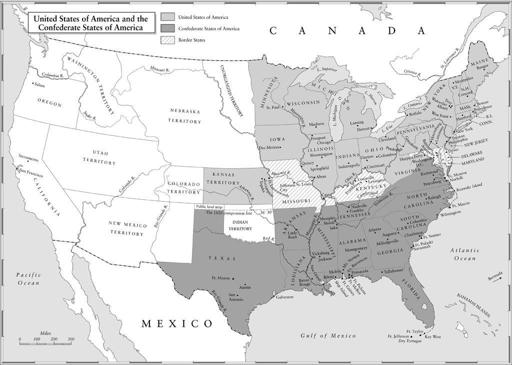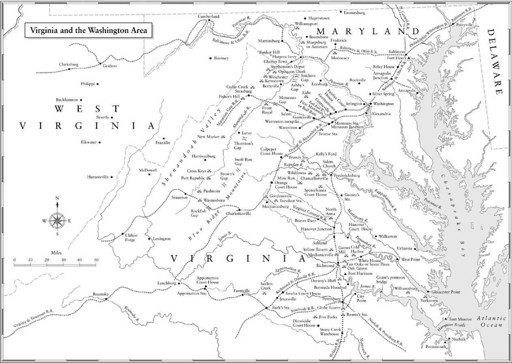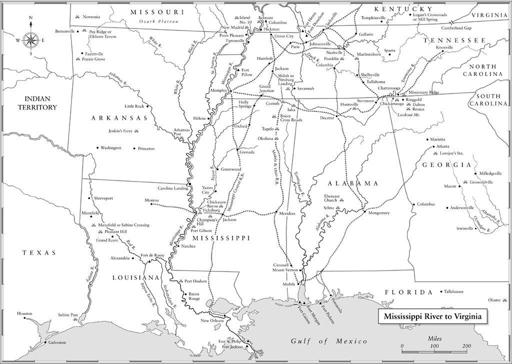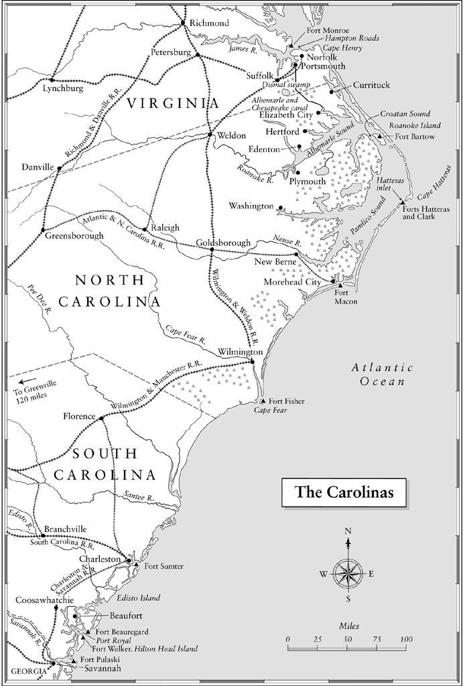A World on Fire: Britain's Crucial Role in the American Civil War (185 page)
Read A World on Fire: Britain's Crucial Role in the American Civil War Online
Authors: Amanda Foreman
Tags: #Europe, #International Relations, #Modern, #General, #United States, #Great Britain, #Public Opinion, #Political Science, #Civil War Period (1850-1877), #19th Century, #History

BOOK: A World on Fire: Britain's Crucial Role in the American Civil War
11.92Mb size Format: txt, pdf, ePub
11.
The consular records show that there were 352 British residents still living in Charleston in May 1865. Some of them were blockade runners who had no means of getting home.
12.
South Carolina Historical Society, Feilden-Smythe MSS, Trevor-Battye MSS, n.d.
13.
Robert Summers,
The Fall and Redemption of Dr. Samuel A. Mudd
(n.p., 2008), p. 56.
14.
Sir Frederick Bruce was relieved that the amnesty included the discharge of all military prisoners still awaiting trial. But there was a catch for foreign prisoners of war. Henry O’Brien sent a plaintive letter to the legation, asking for help because he did not want to swear allegiance to the United States, since “by doing so I expatriate myself.… I am aware that I did wrong in joining a foreign army without Her Majesty’s Licences and consequently have born humiliation and insult without any hope of redress, but now as the war is over and all the prisoners of war being released and as I only ask to be allowed to leave the U.S., I hope you will at least obtain for me some decision by the Washington Military Authorities.” PRO FO115/448, f. 402, Henry O’Brien to legation, June 14, 1865.
15.
Lonnie A. Burnett,
Henry Hotze, Confederate Propagandist
(Tuscaloosa, Ala., 2008), p. 30.
16.
New York Times
, June 26, 1878.
17.
James T. Hubbell and James Geary (eds.),
Biographical Dictionary of the Union
(Westport, Conn., 1995), p. 360.
18.
Jay Luvaas,
The Military Legacy of the Civil War
(Lawrence, Kans., 1988), p. 122.
19.
Letters of Queen Victoria
, ed. George E. Buckle, 3 vols. (London, 1930–32), vol. 1, p. 594, Lord Clarendon to Queen Victoria, May 1, 1869.
20.
Bancroft was so gratuitously rude about Lord Palmerston, who had been dead for less than four months, that an official protest was lodged by the Foreign Office with the American legation: “Lincoln took to heart the eternal truths of liberty … Palmerston did nothing that will endure; Lincoln finished a work which all time cannot overthrow.… Palmerston … was attended by the British aristocracy to his grave, which, after a few years, will hardly be noticed.… Lincoln [will] … be remembered through all time by his countrymen, and by all the peoples of the world.”
21.
MHS, Argyll Letters, p. 86, Duchess of Argyll to Charles Sumner, July 4, 1865.
22.
The easiest route to winning Seward’s trust was to behave toward him as if he were still the most powerful politician in Washington. “He is vain,” wrote the British minister, Frederick Bruce, on May 2; “to show deference to his judgment … is a species of subtle flattery which is not without weight.” James J. Barnes and Patience P. Barnes (eds.),
Private and Confidential: Letters from British Ministers to the Foreign Secretaries
(Selinsgrove, Pa., 1993), p. 378.
23.
PRFA
, I (1868), p. 83, Charles Francis Adams to Seward, May 2, 1867.
24.
The Dominion of Canada was a semiautonomous state under the sovereignty of the Crown. In theory, its parliament was answerable to the Imperial Parliament in London, but in practice the Canadians were left to govern their internal affairs, though not their external relationships with foreign countries, including America.
25.
MHS, Adams MSS, Diary of Charles Francis Adams, April 25, 1867.
26.
Correspondence Concerning Claims Against Great Britain,
vol. 3 (Washington, 1869), p. 674, Seward to Adams, May 2, 1867.
27.
Wendell Phillips Garrison and Francis Jackson Garrison,
William Lloyd Garrison, 1805–1879: The Story of His Life
, 4 vols. (New York, 1889), vol. 4, pp. 205–9.
28.
Lord Russell, quoted in ibid., p. 210.
29.
Correspondence Concerning Claims Against Great Britain
, vol. 3, p. 683, Seward to Adams, November 16, 1867.
30.
Letters of Henry Adams
, ed. Jacob Clavner Levenson (Cambridge, Mass., 1988), vol. 1, p. 498, Henry Adams to Charles Francis Adams, Jr., July 14, 1865. He remained the same stiff and isolated figure who had arrived in 1861. “I am continually puzzled to know how we get along together,” complained his son Henry. “I find the Chief rather harder, less a creature of our time than ever. It pains me absolutely … to see him so separate from the human race. I crave for what is new.… He cares nothing for it, and a new discovery in physics or in chemistry, or a new development in geology never seems to touch any chord in him.”
31.
Martin Duberman,
Charles Francis Adams
(New York, 1961), pp. 330–31.
32.
Frederick W. Seward (ed.),
Seward at Washington
(New York, 1891), p. 538.
33.
Henry Adams,
The Education of Henry Adams
, ed. Ernest Samuels (repr. Boston, 1973), p. 246.
34.
New York
Nation
, 3 (1866), p. 234.
35.
Calculations based on
http://www.measuringworth.com
.
36.
Doris Kearns Goodwin,
Team of Rivals
(New York, 2005), p. 711.
37.
Maureen Robson, “The
Alabama
Claims and the Anglo-American Reconciliation,”
Canadian Historical Review
, 42/1 (1961), p. 22.
38.
Baxter, “June Meeting: The British High Commissioners at Washington in 1871,” p. 350.
39.
Mary Sophia Hill,
A British Subject’s Recollections of the Confederacy
(Baltimore, 1975), p. 66.
40.
Richard Shannon,
Gladstone: Heroic Minister, 1865–1898
(London, 1999), p. 114.
41.
Bruce Herald
, March 28, 1873.
42.
Ulysses S. Grant,
Personal Memoirs of Ulysses S. Grant
(New York, 2003), p. 640.
43.
William Michael Rossetti, “English Opinion on the American War,”
Atlantic Monthly
, 17 (Feb. 1866), p. 129.
44.
Ella Lonn’s magisterial studies of foreign volunteers (published between 1940 and 1951) shed much-needed light on their numbers, but placing the volunteers alongside the other aspects of Britain’s role in the war was outside the scope of her work.
45.
An essential reading list for the Civil War and Anglo-American diplomacy would include: Ephraim D. Adams, H. C. Allen, Richard J. M. Blackett, Kinley Brauer, Duncan Andrew Campbell, Adrian Cook, D. P. Crook, Hugh Dubrulle, Norman B. Ferris, Charles M. Hubbard, Brian Jenkins, Howard Jones, Dean B. Mahin, Robert E. May, Frank Merli, Philip Myers, Frank Owsley, Jay Sexton, Warren F. Spencer, Brian Holden Reid, Philip Van Doren Stern, and Robin Winks.
46.
Gladstone, for example, later blamed his support for the South on his inability to see the issue in its entirety: “That my opinion was founded upon a false estimate of the facts was the very least part of my fault. I did not perceive the gross impropriety of such an utterance from a cabinet minister, of a power allied in blood and language, and bound to loyal neutrality; the case being further exaggerated by the fact that we already, so to speak, under indictment before the world for not (as was alleged) having strictly enforced the laws of neutrality in the matter of the cruiser. My offence … illustrates vividly … an incapacity of viewing subjects all round, in their extraneous as well as in their internal properties.” John Morley,
The Life of William Ewart Gladstone, 1809–1872
, 2 vols. (London, 1908), vol. 2, p. 82.
47.
Rossetti, “English Opinion on the American War,” p. 149.

Double-tap or pinch to zoom.
Click
here
to return to the text.

Double-tap or pinch to zoom.
Click
here
to return to the text.

Double-tap or pinch to zoom.
Click
here
to return to the text.

Other books
Tek Power by William Shatner
Sometimes We Ran (Book 3): Rescue by Drivick, Stephen
The Highest Frontier by Joan Slonczewski
El guardián de los arcanos by Paul Sussman
The Kingdom of Childhood by Rebecca Coleman
Wrapped Up in a Beau by Angelita Gill
The Spy Who Came North from the Pole by Mary Elise Monsell
Music for Chameleons by Truman Capote
Fade To Midnight by Shannon McKenna
Archer's Voice by Mia Sheridan